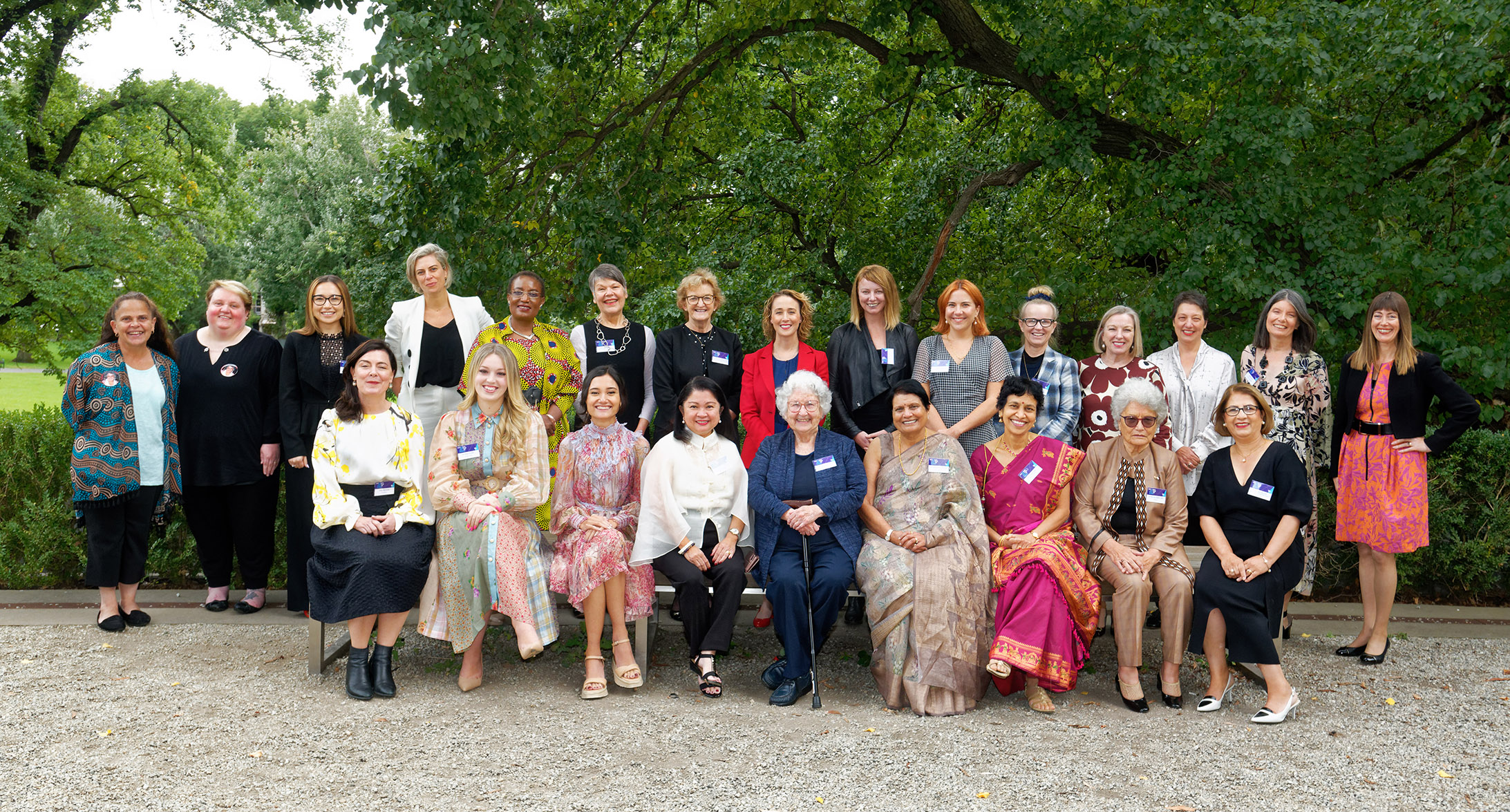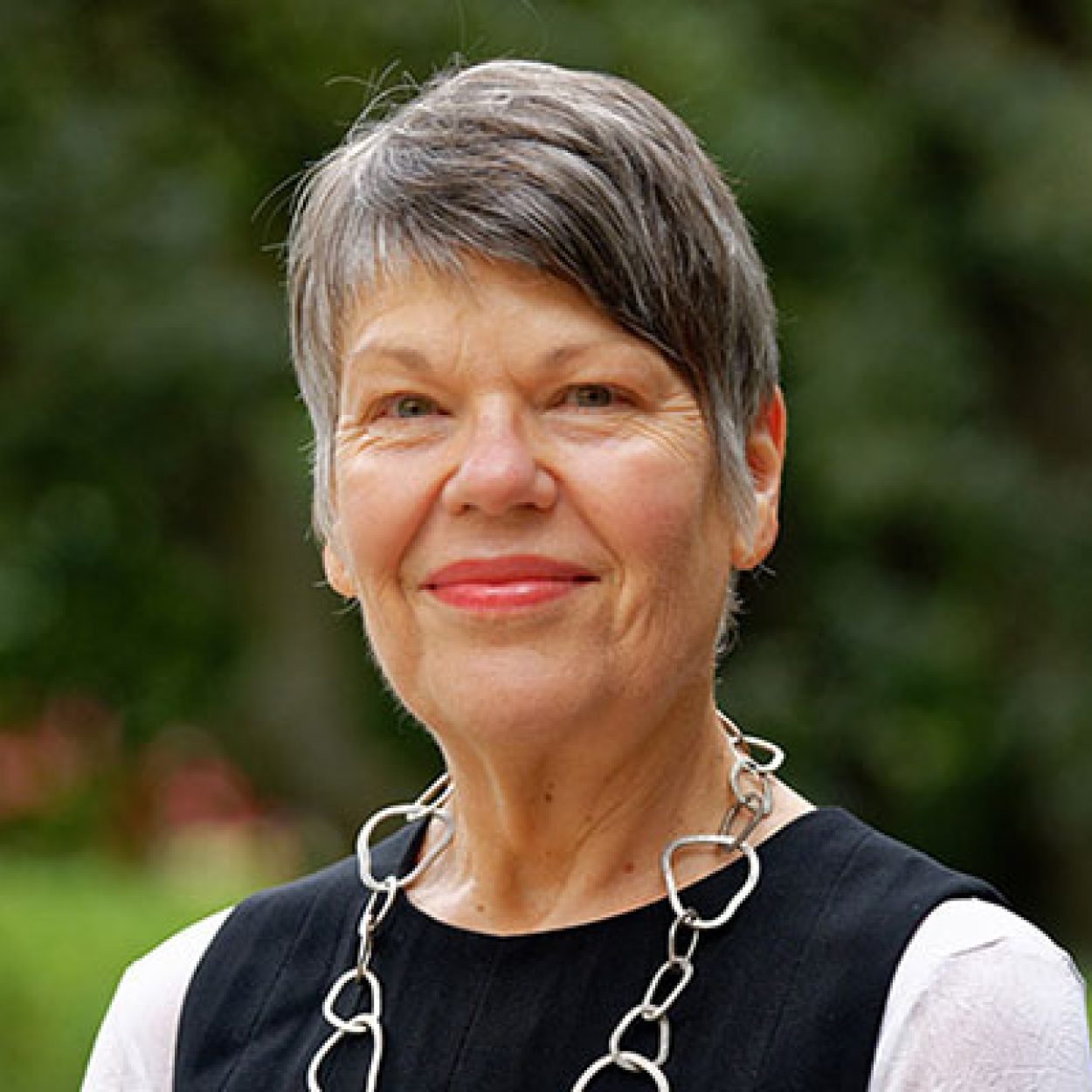
IWDA’s Joanne Crawford AM recognised in honours list
We’re pleased to announce Joanne Crawford AM has been awarded a Member of the Order of Australia.
IWDA’s Joanne Crawford AM has been recognised within the Order of Australia for her contribution and service to women’s rights, gender equality and international development research and practice.
Jo is Strategic Advisor on IWDA’s Equality Insights program. Her previous honours include induction onto the Victorian Honour Role of Women (2021), the Australian Council for International Development’s Outstanding Contribution to the Sector Award (2021), and the inaugural Devies Award for excellence and commitment in development practice (2015).
We sat down with Jo to hear her thoughts on the recognition and her reflections from close to 30 years of engagement with IWDA.
Congratulations on receiving this honour for your contribution to women’s rights, gender equality and international development. What does this recognition mean to you?
“I am deeply grateful to colleagues and collaborators who made time to nominate me in the midst of demanding lives. It feels humbling, and validating, to receive this award. For me, as for many feminists and advocates, work for change is not just a job. And the support of colleagues in nominating me demonstrates the mutual care, solidarity and commitment that sustains this work.
In the context of an award announced on 26 January, it is critical for me to acknowledge the colonial dispossession, loss of land, language and culture experienced by First Nations people, the deep significance of survival, and the extraordinary generosity of indigenous leadership. Reckoning, recompense and reconciliation is vital, and pressing.
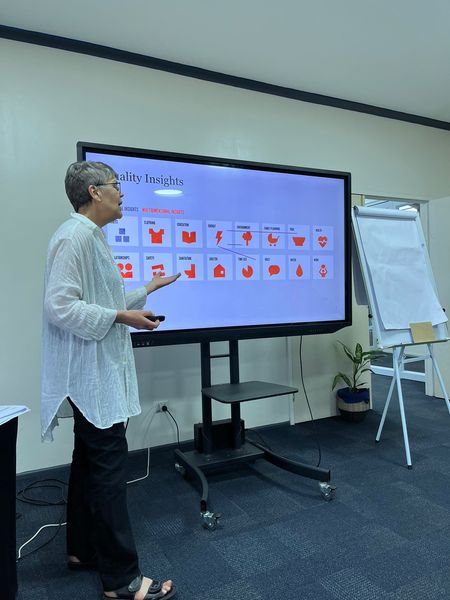
Work for change is often incremental and requires consistent effort over time, and it’s great to have this recognised. Gender inequality is rooted deep in systems, structures, institutions and norms, in ways that can be hard to see because it is so normalised – part of how things work. Change requires sustained, detailed work to reveal the impact of gendered systems and practices, challenge established ways of thinking, name silences, and show what else might be possible, and better. Pushing thinking, policies and practice further, faster. Creating and taking opportunities. It involves supporting and enabling others to make change, in ways that may be invisible to others. This work needs individuals to drive things forward, institutions that enable and inspire them to act, and movements that link efforts across space and time.
The award is also an opportunity to highlight some messages that have been a consistent for me over the years. One reason that change towards gender equality is so slow is the cavernous gap between widespread and repeated commitments to gender equality and women’s rights, and implementation and resourcing that matches the scope of the commitments and the extent of change required. Funding for feminist organisations and movements remains woefully low, despite evidence that they are key to change. And we are seeing significant funding to anti-rights work, towards rolling back previous gains. Funding of anti-rights movements in the United States alone is close to the level of funding for feminist organisations and movements globally. As Sam Mostyn said recently, ‘We have arrived at a moment of consequence.’ A genuine commitment, and resourcing consistent with that, is vital for the future of equality and rights.”
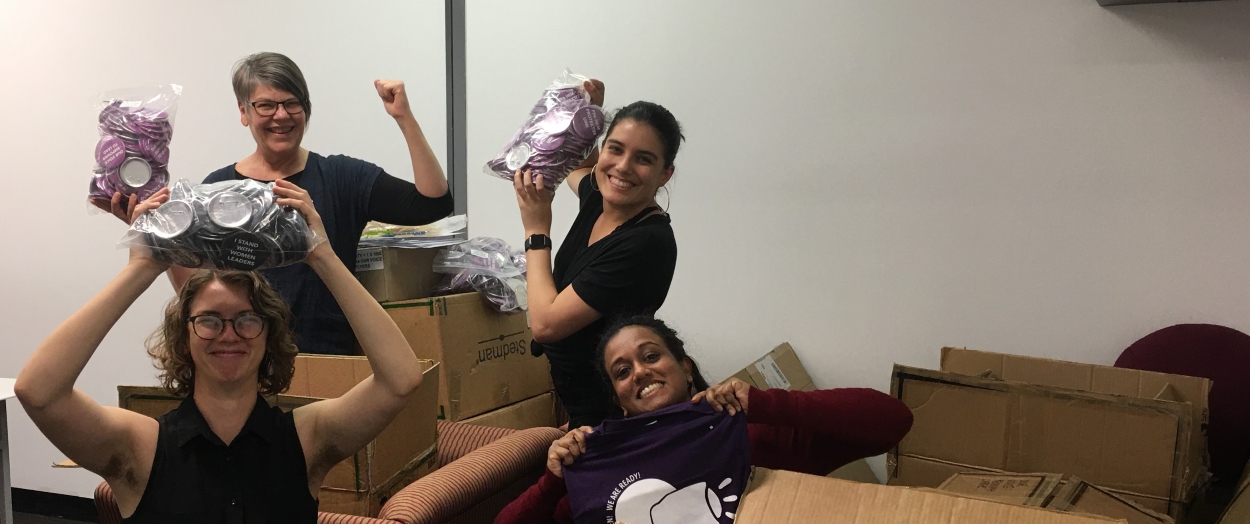
You have been involved with IWDA across a time span of 30 years, including as Board Member and Vice President, Executive Director, Research and Policy Advisor and now as Strategic Advisor on the Equality Insights program. How has IWDA, and its role in the feminist movement, changed over that time?
“When I first worked as a consultant with IWDA in 1995 – around 10 years after the organisation was first established – there were maybe 8 staff. At that time, IWDA funded ground-breaking small initiatives in diverse contexts – Asia, the Pacific, Africa, the Middle East and Latin America – from efforts to broker peace in Bougainville, to ending female genital mutilation. Around 2005-06, the organisation decided to focus on Asia and the Pacific, to enable the kind of consistent engagement required for meaningful partnerships. Over time, the organisation has grown into what it is today, with a staff of around 60 passionate feminists supporting the work of partners to advance gender equality in the region, and contributing to global efforts to shift systems and structures that sustain and reproduce inequality.
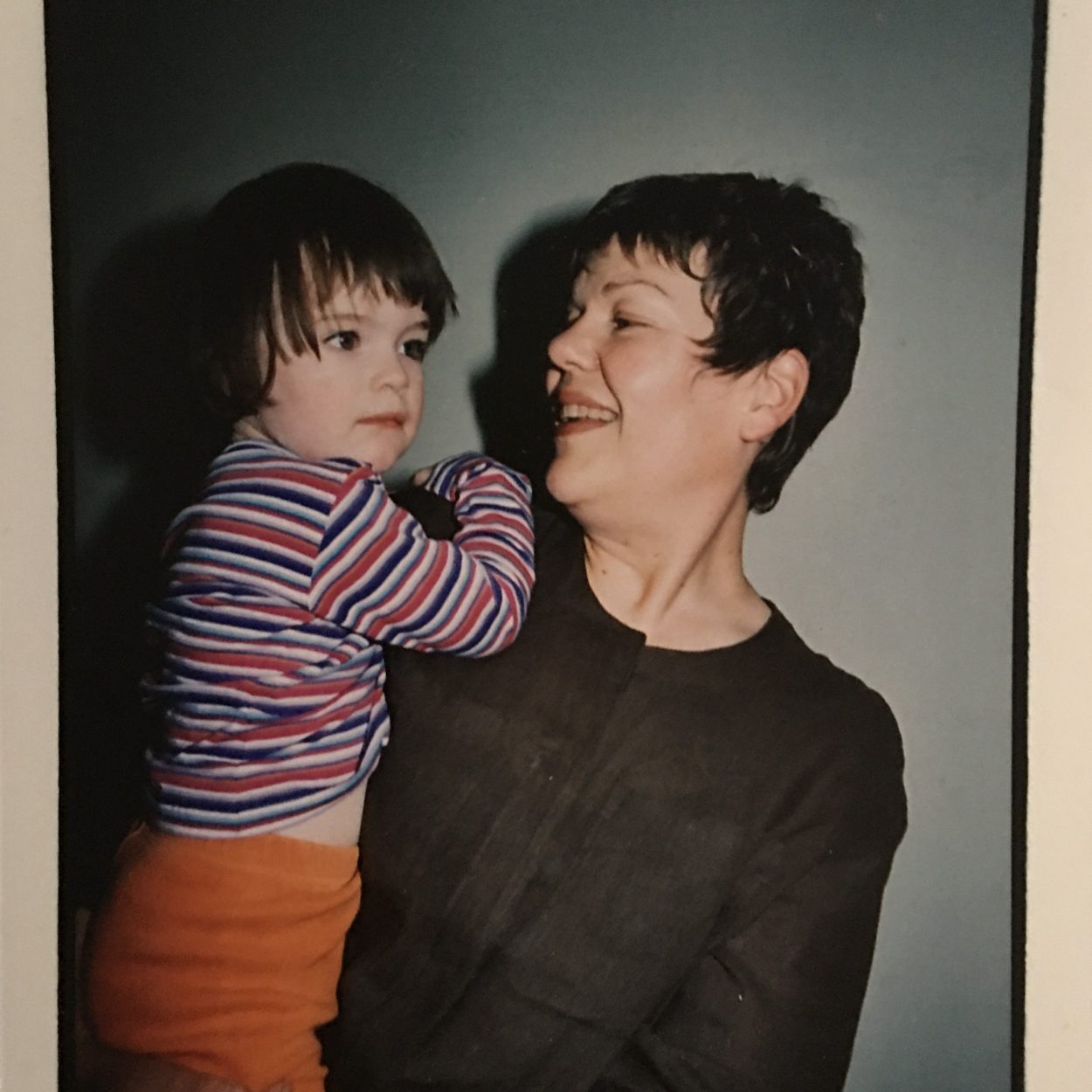
Alongside changes in scale and geographic focus, there has also been a move from small projects to resourcing multi-year programs co-designed with partners. And a growing focus on policy, research and advocacy as key to change. I was the only staff member with a dedicated focus on policy, research and advocacy in 2007, and it was only part of my role. Today, some one-third of staff have policy, research and advocacy as part of their work, and it is a core part of how IWDA contributes to change. IWDA now has a clearer and more nuanced understanding of its contributions to change, which enables greater intentionality and focus – on feminist work, on funding and contributing to feminist movements, and on becoming an explicitly anti-racist organisation.
There is also lots that hasn’t changed. Gender equality and women’s rights as a driving purpose. A partnership model that centres long-term, meaningful partnerships with women’s rights organisations. Working closely with the Australian Government as a core partner in advancing equality and rights through Australia’s development cooperation. And smart, committed staff, contributing to thinking about the kinds of change that is needed, demonstrating what this looks like in practice, and developing practical tools to enable other organisations to contribute to change.
The special annual report produced for IWDA’s 30th anniversary in 2015 provides a snapshot of the first three decades, and recent reflections from outgoing CEO Bettina Baldeschi are a window onto the last 11 years, the evolving nature of IWDA’s work, and the power and potential of feminist leadership.
What are you most excited about in 2024?
“Lots of things get me excited! I love collaborating, thinking and problem solving with colleagues. 2024 is an exciting year for the work of Equality Insights, IWDA’s flagship program to change how poverty is measured. I’ll be at this year’s UN Commission on the Status of Women in March, which includes a focus on poverty. This presents an opportunity to realise commitments first made at the Fourth World Conference on Women in 1995 to measure poverty in a way that helps to understand and transform the relationship between gender and poverty. The UN High-Level Political Forum on Sustainable Development is reviewing Sustainable Development Goal 1, End Poverty in all its forms, everywhere. I see these two multilateral fora and processes, and the UN World Data Forum at the end of this year, as real opportunities to strengthen how poverty is measured so that it is more inclusive and accurate.
In 2024, it is not possible to say with accuracy how many women are poor globally, or if women are poorer than men overall or vice versa. And much poverty data provides little insight into circumstances inside households, a significant site of gender inequality. Systematically ignoring differences inside households undercounts global poverty by around one-thirdi . This is extraordinary. There is recognition of the limitations and the need to address them. For a long time, the problem was lack of a robust, feasible alternative to assess the poverty of individuals rather than households. The work of Equality Insights, and its earlier iteration, the Individual Deprivation Measure, with sustained support from the Australian Government, has provided an alternative. I am excited about the opportunities in 2024 to accelerate action on poverty and inequality, to share the power and potential of Equality Insights, and highlight the leadership of countries in our region – Tonga and Solomon Islands – in partnering with IWDA to demonstrate what innovation makes possible. Governments and advocates need data that help them see lived realities, to inform priorities and action. I am looking forward to seeing the difference it makes to focus and action.
Another thing I am excited about is collaborating with the Gender and Environment Data Alliance, a collective global endeavour to strengthen the availability and use of data at the nexus of gender and the environment. Women, girls and other marginalised communities are disproportionately affected by negative impacts of climate change and environmental disasters, and leading change including in the Pacific. IWDA is proud to be a part of GEDA and contributing to its work.”
You show deep commitment to your work. What keeps you motivated?
“Purpose has always been a powerful motivator for me, from working for disarmament and peace in the 1980s, when the risks of nuclear war felt urgent and existential, to working with government on reconciliation, gender equality, gender budgeting, international relations and cultural diversity in the 1990s, to working on housing policy and advocacy in the early 2000s. And now, the motivation of continuing and evolving opportunities to contribute to equality with IWDA and collaborate with some very special people. Deep collaboration to create change with and through institutions in intrinsically interesting, and key to achieving a whole that is more than the sum of its parts. That, plus the scope of change needed, keeps me well and truly energised. When you are interested in ideas and processes, systems and structures, as mechanisms for change, and you combine that with ambition for impact, motivation and opportunities follow. It’s self-reinforcing.
Inspired by the 4S framework* that IWDA uses to guide its work, and being partial to alliteration, I could summarise some of my drivers in a 4C framework– care (in its multiple definitions), colleagues, collaboration and change. Or a 4P framework – purpose, policy, potential, possibility. And a 4I framework – ideas, institutions, individuals and integrity.”
Visit the Equality Insights website to learn more about the work Jo and her colleagues are doing to change the way poverty is measured.
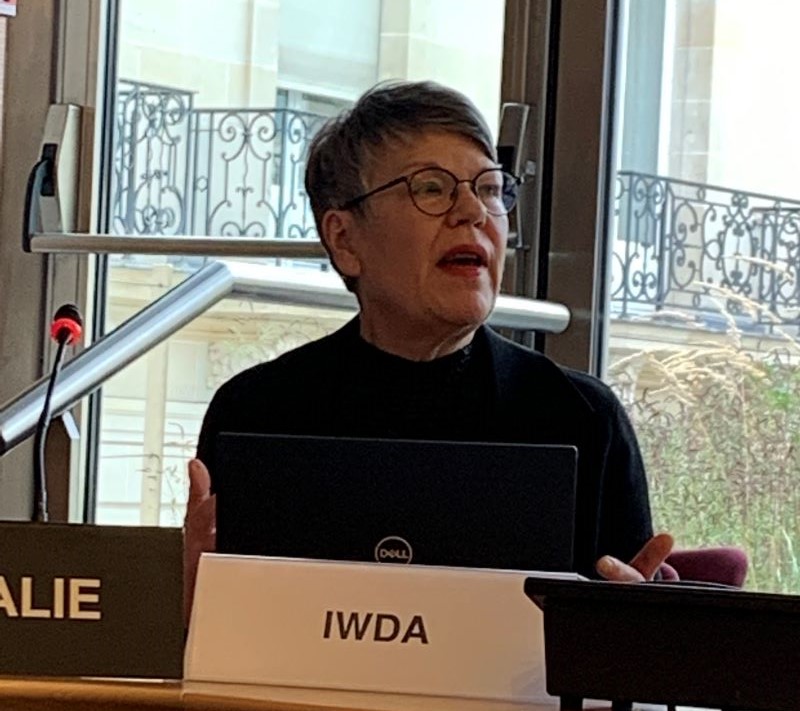
i Ravi Kanbur. 2016. Intra-Household Inequality and Overall Inequality. Cornell Dyson School Working Paper 2016-11. http://publications.dyson.cornell.edu/research/researchpdf/wp/2016/Cornell-Dyson-wp1611.pdf
IWDA’s 4S Framework: “Step Up, Stand With, Step Back” is an adaptation of the framework proposed by Shirley Walters and Shauna Butterwick in their 2017 publication, Moves to Decolonise Solidarity Through Feminist Popular Education. “Sit with” was added to the framework based on feedback provided to IWDA by Alfred Deakin Professor and Chair in Race Relations Yin Paradies.
